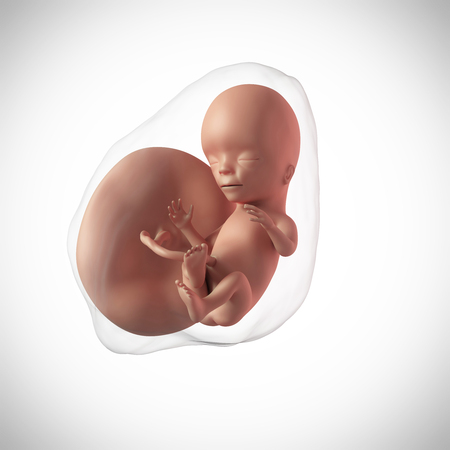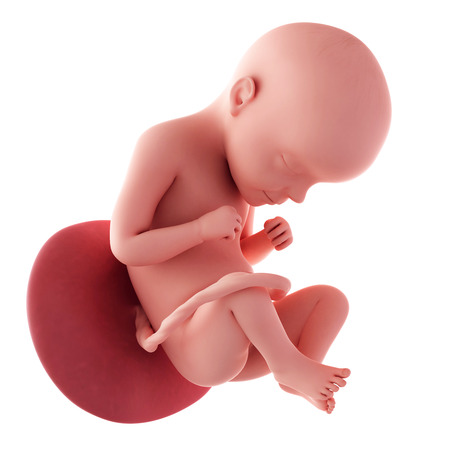Postpartum Complications – Why and What You Should Know!
The nine month long wait is finally over and your little baby in here in your arms. With the end of labor and pregnancy, there begins an all new chapter in a women’s life and that is motherhood. The things that worried you just a few months back like pregnancy signs by week have now been replaced by baby blues symptoms. The reason is that just after giving birth, there are changes happening within the body each minute. An all new routine, baby care, newborn feeding and the turmoil created by hormones can be quite overwhelming for first time parents. This postpartum period needs to be tackled very carefully. The more care you take now, the easier it will be to get back to your pre pregnancy shape and avoid the possibilities of postpartum complications.
There are some postpartum complications that are common during this post partum period and we shall discuss them in details here. You will also learn some of the red flags that you need to identify and rush to your doctor at the earliest.

Postpartum Complications
- Infections during the postpartum phase. Postpartum infections could be of the urinary tract, bladder or kidney infections. You must take very good care and maintain hygiene. The main presentation will be fever. The accompanying symptoms along with the fever will help in establishing the diagnosis.
- Bleeding after pregnancy is called as lochia. This comprises of the wastes that are left behind post delivery. The discharge is brownish and later on it becomes reddish in color. Then it gradually becomes pale and scanty and stops. In some cases there may be excessive bleeding along with passing of big blood clots due to conditions like retained placenta when a small bit of the placenta has been left behind. In cases of severe bleeding, dilatation and curettage may be required.
- Localized infection of the wound site either at the site of episiotomy or the C-section scar may get infected and give rise to pain and swelling along with tenderness. There can be a foul smelling discharge from the affected site. It will need proper and systematic wound care and dressing.
- Mastitis or swelling of the breasts can also happen especially in breast feeding mothers. There will pain and redness of the affected breast along with fever. The mother will be unable to feed from the affected side. If the milk duct gets blocked it can also lead to a breast abscess. Such cases need surgical incision and drainage of the abscess.
- Urinary incontinence may occur in some of the cases because of the weakness of the pelvic and urinary muscles. In some ladies, it may also lead to pain and discomfort during sexual intercourse.
- Excessive strain on the blood vessels of the pelvis by the growing fetus may lead to engorgement of the veins and hamper the normal venous return thus leading to hemorrhoids and constipation. Avoid straining at stool and use a laxative so that the stool is not very hard. A good fibre diet and plenty of water will also play a major role in keeping constipation away.
- Postpartum Depression is one of the severe postpartum complications that occurs in the initial few weeks. Pregnancy depression is quite common and has to be dealt with very delicately. There are a very small percentage of mothers who identify the symptoms and seek help for such conditions.In the first four weeks post delivery, the mother may have mood changes and irritability as she adjusts with the new routine. These are called baby blues symptoms. However when these symptoms intensify, and the mother become incapable of taking care of herself and the baby, then they are categorized as postpartum depression symptoms. This kind of illness is seen more often in women who are single parents or if the pregnancy was unplanned and unwanted. Pregnancy depression is also an identified risk factor in such cases.
What Are The Symptoms of Postpartum Depression?
The symptoms are somewhere similar to those of depression. They include irritability at the smallest things. The anger may also become violent and aggressive. There may be outbursts of crying and a feeling of guilt that she is not able to take care of the baby. Many mothers also have sudden outbursts of crying without any reason. They are unable to accept the fact that they are not feeling happy at the birth of their baby and this further increases their suffering. Strange food cravings and sleeplessness may also be seen.

Management of Post Partum Depression
Most cases will do well with counseling and a strong family support system. Once the problem is identified, you must ensure that you have some kind of helpat least for a few months till you are able to get back to normal. This will help you to recover and also reduce the number of outbursts. Counseling sessions work well in such postpartum complications. The husband and the family members also need to be explained about the situation so that they can deal with the mood swings and outbursts.
In a very small percentage of postpartum psychosis cases, there may be danger to the child as the mother may lose control over herself. In such cases the mother needs hospitalization and treatment with antipsychotics and mood stabilizers. Some of these medications may not be totally safe for breastfeeding mothers so that aspect should be considered. The child should be kept in safe custody of a parent or guardian till the mother recovers completely.
The nurse and healthcare professional must talk to the patient so as to rule out any signs of postpartum depression. This is important because it is less likely for a new mother to come up and share such unusual feelings. If your suspect anything, you can discuss it with the patient or better arrange a counseling session for her.
The message that we need to take home is that each lady needs to care for herself after delivery in terms of food, nutrition, health and make sure that you have someone to share your feelings with. A good support system in place can help prevent complications like postpartum depression.



